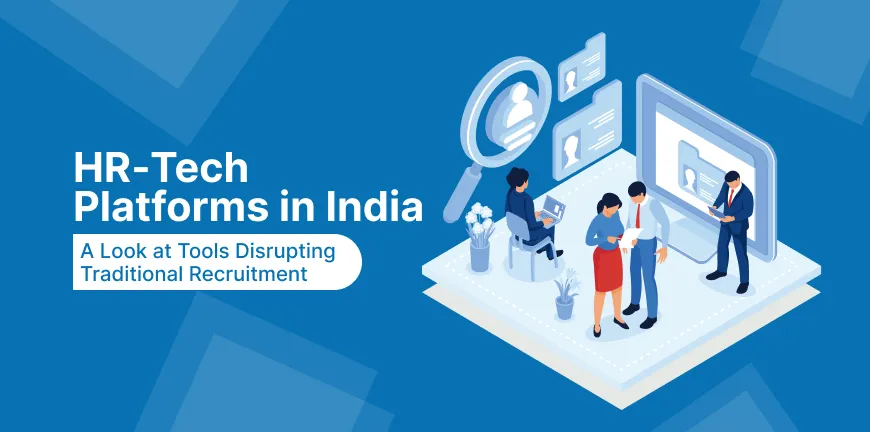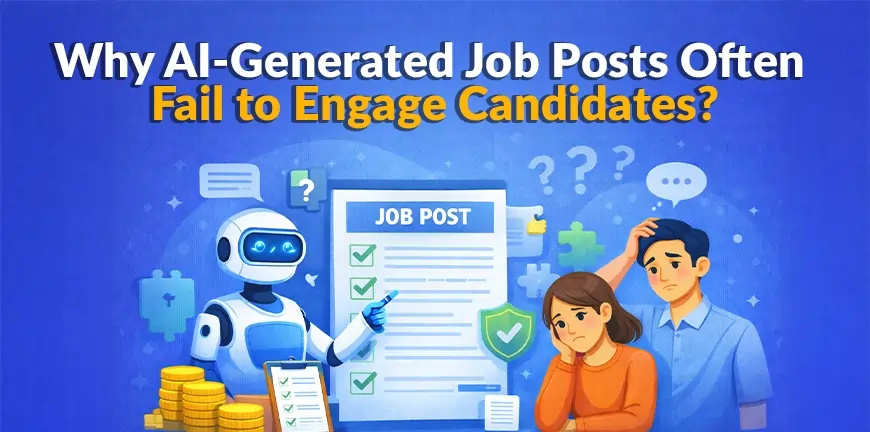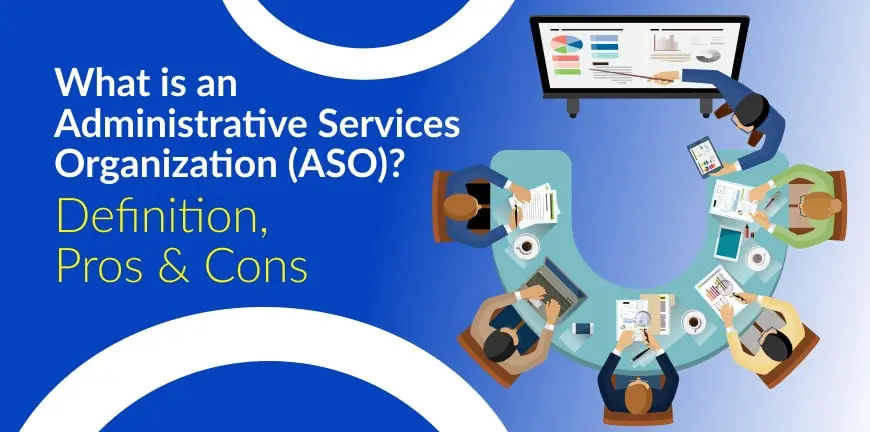
Cybersecurity Talent Demand in India
03/11/2025
Employer Branding & Candidate Experience: Leveraging Tech for Better Hiring in Sectors Like FMCG & Retail
07/11/2025“The world of work is rapidly changing with talent shortages in some areas and surplus in others… organisations will have to rapidly move away from ‘old-world HR IT’ systems to a more ‘interactive digital employee experience”, V Krishnan, CHRO, Havells India:
The hiring pattern of India is evolving, and it is wise that we keep the old recruitment methods in the past. Gone are the conventional methods of sifting through the never-ending bunch of resumes or bombarding candidates with emails to get their feedback. Let the bygones be bygones, as the new era of HR tech platforms has already made an entrance.
These platforms are equipped with AI-powered tools and data insights, revolutionising the talent acquisition process. As businesses grapple with a slew of adverse factors like talent scarcity, evolving candidate experience, etc., the new digital phenomenon is transforming old, mundane, and tedious hiring methods into smart, fast, and strategic concepts that are redefining the very core of recruitment.
Let us explore the various facets of how traditional recruitment is facing turbulence and is getting replaced by modern technology:
What is the Cause of Disruption?
1. Rapid Hiring Patterns
India’s job market is moving fast, with an array of startups and large enterprises expanding. There is also a high demand for temporary and contract workers. These developments are putting pressure on organisations to quickly fill roles and manage the vast candidate volumes. The old hiring techniques are manual and slow, and cannot keep pace with the rapid changes.
According to a June 2025 report, AI-powered tools like applicant tracking systems plus machine analytics can reduce time-to-hire by 30-50% in Indian contexts.
2. Prioritising Quality over Quantity
There is a new concept of quality hiring that is gaining momentum, and organisations or recruiters are looking at hiring professionals who are a right match for their business, not just job role-wise, but also culturally. Today, individuals are hired using data analytics and predictive analytics, focusing on performance capabilities, retention, and cultural match.
3. Enhancing Brand Image and Candidate Experience
In the race of competition for acquiring top-notch talent, companies are realizing that the candidate experience during the hiring procedure has become a vital decision maker.
As skilled professionals have a plethora of job offers and opportunities lined up for them in today’s job market landscape, organisations and recruiters must focus on facilitating a positive recruitment journey for candidates by fostering clear communication, offering mobile-friendly platforms,
AI-powered processes, etc. This will automatically improve the brand image of a company, as the nature of recruitment will draw skilled job seekers towards the company.
4. Data, analytics, and compliance
In today’s era, recruitment has broken barriers and is not just about finding candidates and hiring them. It is about intelligently understanding the whole process, using modern technologies like data analytics, automation, and an accountable approach to create a recruitment structure that focuses on not only who the candidates are, but where they belong, why certain positions take time to fill, etc.
Modern recruitment is also about adhering to all the compliance laws and regulations. With a slew of laws and changing rules laid down by the government and other bodies, it can be a complex affair, and recruiters are focusing on maintaining a robust structure to diligently cater to all the rules and norms.
Leading HR-Tech players in India
1. Darwinbox
The organisation was founded in 2015 and offers a range of full HRMS platforms (core HR, payroll, recruitment, onboarding, performance). For hiring purposes, it provides AI-powered screening, analytics, a mobile app for hiring, and customizable workflows across locations.
2. Keka
The firm essentially caters to MSMEs and SMEs, offering HR tech solutions like applicant tracking, job postings, AI-based job description optimisation, and integration with job portals.
3. Cutshort
This is a talent marketplace focusing on AI-powered talent matching and not traditional job postings. The company has created trust scores, algorithmic matching, and smart chatbots.
Vital Benefits
- Cost and Time Efficiency- The AI-enabled tools expedite and automate recruitment processes and the process of screening resumes, scheduling interviews becomes easier, saving manual hours and additional expense, and initiating faster decision-making.
- Improved Quality of Hired Candidates- The utilisation of modern techniques like AI tools and analytics in skill evaluation enhances the scope of better matches, and organisations end up recruiting top-quality employees.
- Accelerated Candidate Experience: Candidates are highly satisfied with their recruitment journey as they can complete the processes early with easy communication tools, mobile access, and instant feedback.
- Data-powered Decisions: HR departments and managers can facilitate smart decisions with the help of data; they can now track the performance metrics, attrition rates, effectiveness of hires, etc.
- Agility and Adaptability- The modern hiring methods with the analytical and flexible approach can help various kinds of enterprises. Startups, large enterprises can all benefit from the methods depending on the platform they possess.
Key Challenges
1. Data Inconsistencies
Data analytics is a smart method facilitating fast analysis and tracking of metrics. However, analytics totally depend on data, and if the data is inaccurate or incomplete, then the analytics will not work and might also have adverse effects.
2. Biased Approach and Algorithm Concerns
Machine Learning and AI have undoubtedly transformed the recruitment ecosystem and made processes convenient and easy. But with new technologies come new risks and challenges like algorithm bias.
This happens as AI systems are usually trained on Western datasets, and these algorithms can sometimes not be conducive to the Indian workforce, as they might not correctly capture the cultural diversity and language aspects, resulting in generating biased and unfair conclusions.
3. Management Mentality
The HR departments and some sections of the management are used to old methods and are comfortable with the manual processes. They might show resistance while adopting new methods or might refuse to upgrade themselves with new skills and techniques.
4. Integration with systems
One of the most significant challenges organisations face is to smoothly incorporate modern HR solutions into old and existing systems. The old systems are built differently and might have difficulties while the new technology is being integrated. This might result in data disruption, inconsistent candidate information, duplication, etc.
5. Managing Candidate Data Privacy and Ethical Issues
AI and modern tech tools are driving recruitment stages like screening, interviewing, and predictive assessments smoothly. However, large volumes of sensitive candidate data are being circulated, and safeguarding them can be a concern.
Gathering personal data, analysing it, and using it for behavioural patterns can result in rising concerns about ethical and privacy aspects.
Ways in Which Organisations in India Must Adopt These Tools
To utilise HR tech platforms effectively, here are a few ways companies can bank on:
Define Hiring Challenges Clearly- Organisations must have clarity about what their Hiring concerns are and what kind of solutions they must select before adopting any HR tech solution.
Focus on Indian centric Features– Organisations and HR teams must ensure that while selecting technologies for the Indian market. They must prioritise features that support and accommodate the several Indian languages used and adhere to the Indian compliance rules and regulations.
Train HR Teams and managers: HR technologies are undoubtedly advanced, but the best of technologies cannot deliver properly if they don’t have a good support system. Technology works fine only when people using it operate it accurately. It is the responsibility of organisations and recruiters to provide proper technical training to HR teams and managers for the smooth functioning of technologies.
Human Intervention Essential- AI and technology, and modern systems, enable faster and smarter hiring processes, but there will always be a requirement for human influence, as research suggests that a pure algorithmic approach can overlook cultural aspects, along with candidate aspirations and other specific aspects.
Candidate Experience is Important- Candidate engagement is not just about drawing top talent and placing them in companies for varied roles. The perception has changed, and it is the entire hiring journey that matters the most. Modern HR tools can make the experience smooth by automating procedures, enhancing communication systems, providing instant feedback, etc.
The Future Outlook
- Upgraded and Sophisticated AI & ML systems: There will be more sophisticated systems introduced in the market that will be used for better candidate matching purposes, better evaluations, and improved predictive analytics systems.
- Surge in the use of mobile and interaction platforms: The expectations of candidates will grow towards mobile applications, chatbots, and voice interactive platforms during the recruitment cycle.
- Importance to Gig, contract, and remote hiring: HR tech platforms will focus on work models that are unconventional in India.
It is the era of reimagining recruitment methods and adding an extra zing to it for better agility, scale, innovation, and insight. It is up to the organizations to select HR tech tools proactively and smartly blend them with human oversight to get an edge over the others.

Rajkumar Shanmugam
Rajkumar Shanmugam is the Head of HR at ALP Consulting, bringing over 19 years of comprehensive HR leadership experience across India and international markets. His expertise spans talent acquisition, employee relations, performance management, compliance, and HR transformation. Rajkumar has a proven track record of driving people-centric initiatives, enhancing workplace culture, and aligning HR strategy with business goals. With extensive experience in US staffing operations and global mobility, he continues to lead organizational excellence through innovation and employee engagement.




